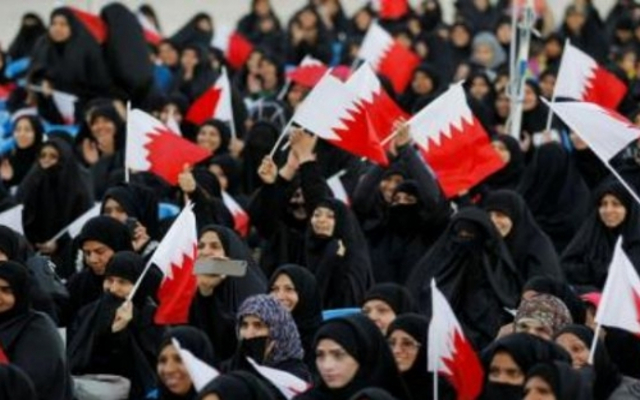On 22 November 2016, King Hamad bin Isa Al Khalifa was presented the United Nations Industrial Development Organization (UNIDO) Award. The award recognizes Bahrain’s role in developing economic opportunities for empowering women and youth. The Bahrain Model for Economic Empowerment, an initiative started through UNIDO and the Bahraini government’s partnership, is reportedly being replicated in 48 other countries.
The Crown Prince of Bahrain, Salman Bin Hamad Al Khalifa, received the award on behalf of the King. He said Bahrain’s programs are, “built upon the principles of the 2001 National Action Charter, which continues to drive programs and initiatives that advance individual rights and justice, enhance accountability, and increase participation in sustainable development.” He also pointed out that the King has achieved progress in fields of entrepreneurship and empowerment for women regionally and internationally. Several recent cases, including harassment of women human rights defenders and political activists, seem to indicate the opposite.
On 19 August 2016, police arrested Ghada Jamsheer on charges that she was criticizing Bahraini government leaders and the lack of free speech rights in the country. Jamsheer founded the Women’s Petition Committee (WPC), an organization which advocated for women’s rights in the country. In 2006, Time magazine recognized Jamsheer for her human rights work. And Forbes named Jamsheer that same year as one of the top 10 most powerful women in the region. On 26 June 2016, security forces arrested Taiba Ismail on charges that her tweets “incited hatred against the government.” She is one of several who the Bahraini government has recently charged for their social media use. The mother of two stated that just “140 letters have made (my) children without the care and nursery of their mother.” In March 2016, Bahraini authorities sentenced Taiba Darwish to five years in prison. Since her imprisonment, she has not received proper medical treatment for her uterine fibrosis or for the problems with her kidneys, which has taken a toll on her psychological state. Darwish reported to her family that she has been abused by authorities.
The Bahraini government has also introduced concerning new policies that affect Bahraini women. In August 2016, Bahrain’s Ministry of Islamic and Judicial Affairs announced implementation of a new hajj policy. This policy requires all women under the age of 45 to be escorted by a male guardian while on the religious pilgrimage to Mecca. The policy will come into effect in time for the 2017 pilgrimage. Banning women under the age of 45 years from exercising their rights to perform the religious duty of hajj if they do not have a male guardian is discriminatory and repressive. This policy falls in line with the guardianship system in Saudi Arabia, which human rights groups condemn. Bahrain’s relationship with Saudi Arabia may be a factor in requiring women a guardian in order to go on hajj. Prince Salman Bin Hamad Al Khalifa has referred to relations with Saudi as “fraternal.” Bahrain may feel inclined to issue a gender-biased policy for hajj in order to strengthen the favorable relationship with its neighbor.
Despite receiving the UNIDO Award, human rights groups see the state of women’s rights in Bahrain regressing. The arrests and treatment of human rights defenders, political activists, and detainees, in addition to the new hajj policy, are not exemplary of a country that has just been awarded for empowering women.
Bobby Froembling is an Advocacy Intern at ADHRB





